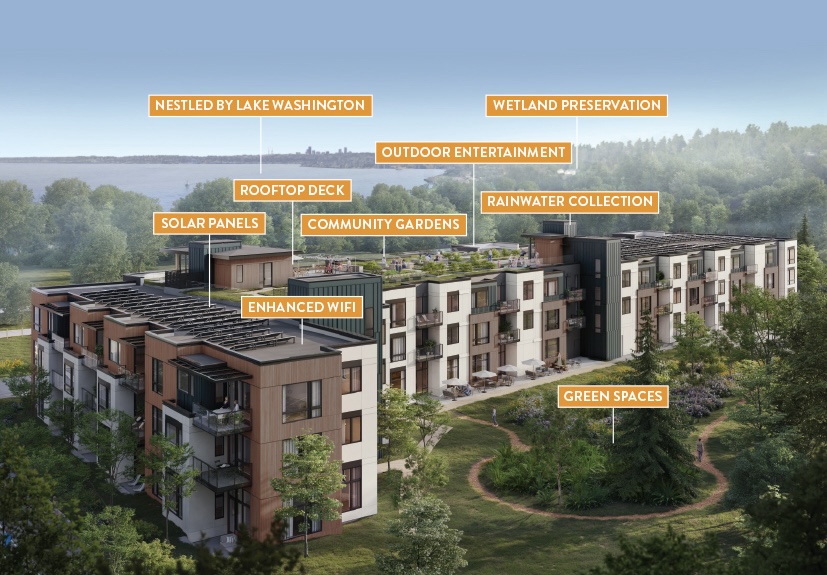Seattle Times Aging Well: Spring 2024 Feature
It’s never too early to start the search for your future senior community. Depending on your current lifestyle preferences or future needs, there are many different options to consider. From stand-alone independent living communities to life care communities offering a full continuum of care, weighing all these options can be overwhelming even before the decision is pressing.
This is why the search to find the right fit should start as soon as you become curious. That’s advice from Paul Barlow, vice president of sales and marketing at Transforming Age — a senior living provider with over 49 communities in Seattle.
Barlow offers some tips to get the most insights during the search process:
Start looking sooner rather than later.
The number one thing we hear, no matter the level of care, is ‘I wish I did this sooner,’ ” Barlow says. Community residents can range in age from younger seniors in their 60s looking to simplify, to older adults who may need additional services.
Assisted living communities can take up to 3-4 months to access while memory care takes 2-3 months. Those who wait too long may miss out on the perfect apartment or the benefits of having a built-in network of friends and activities.
If there’s a waitlist, don’t get discouraged, get on it. The people in front of you may be unable to accept the offer when available.
Sample widely.
Barlow suggests touring at least three communities before deciding. You might come in for a full tour, meet with a salesperson about price options, speak with a nurse about care needs, enjoy lunch or join an activity. Even a surprise drop-in visit might be wise.
“Trust your gut,” Barlow says. “Your first impressions are probably the right impressions.” Red flags could include a building in disrepair, neglected landscaping, unsmiling staff or residents or the facility not looking or smelling clean.
Decide what’s important to you.
Each person will have a different take on what’s most important in a community. For many, location and maintaining a social life are vital. A solid community will offer group activities that encourage interaction and meaningful relationships. It can also provide a way to enter the surrounding area and give back to the community.
For some, the location should be close to their medical team and family members and feel safe and close enough for a walk to the store. Religious or language accommodations can come first, too.
And, of course, one of the most essential benefits isn’t just for foodies. “If you’re not invited back to try a meal or didn’t get offered a meal on your tour, invite yourself back for one,” Barlow suggests. It’s not imposing on anyone, as meal services are already underway.

Susan Pietrowski decided to move to Parkshore Juanita Bay because she was impressed with the sustainability efforts and the responsiveness of the architects to implement resident suggestions like solar panels, enhanced floor plans and considering local wildlife in the landscape design.
Review the team’s expertise and training.
“A happy and cohesive team helps all residents thrive,” Barlow says. Staff should have many years of experience at each location, indicating a lack of turnover.
An attentive, long-term team excels at noticing small details. A staff member can alert a nurse to schedule a visit if a resident seems out of sorts at breakfast.
The organization should offer plentiful training to ensure credentials are maintained and staff is familiar with the science and practice of their work. Such training benefits residents and the staff, who won’t depart for better opportunities.
Discuss financial feasibility.
Barlow notes that the affordability of senior living is a critical element. “Once comfortable with the salesperson, feel free to be open and honest about your financial resources,” he suggests.
The salesperson may know of opportunities such as veterans’ aid programs or how your long-term care insurance policy might apply. And if the community is outside your budget, the salesperson likely can recommend other trustworthy, high-quality options for you or a loved one.
“We’re all in this field for a reason, to help seniors,” he says. “At the end of the day, we’re not really competitors, we’re co-petitors and here to help.”
Transforming Age is a nationally recognized nonprofit offering holistic and integrated solutions that enable people to age successfully. Dedicated to enhancing the lives of older adults, Transforming Age offers an integrated network of housing, community services, technology, philanthropy and partnerships.
